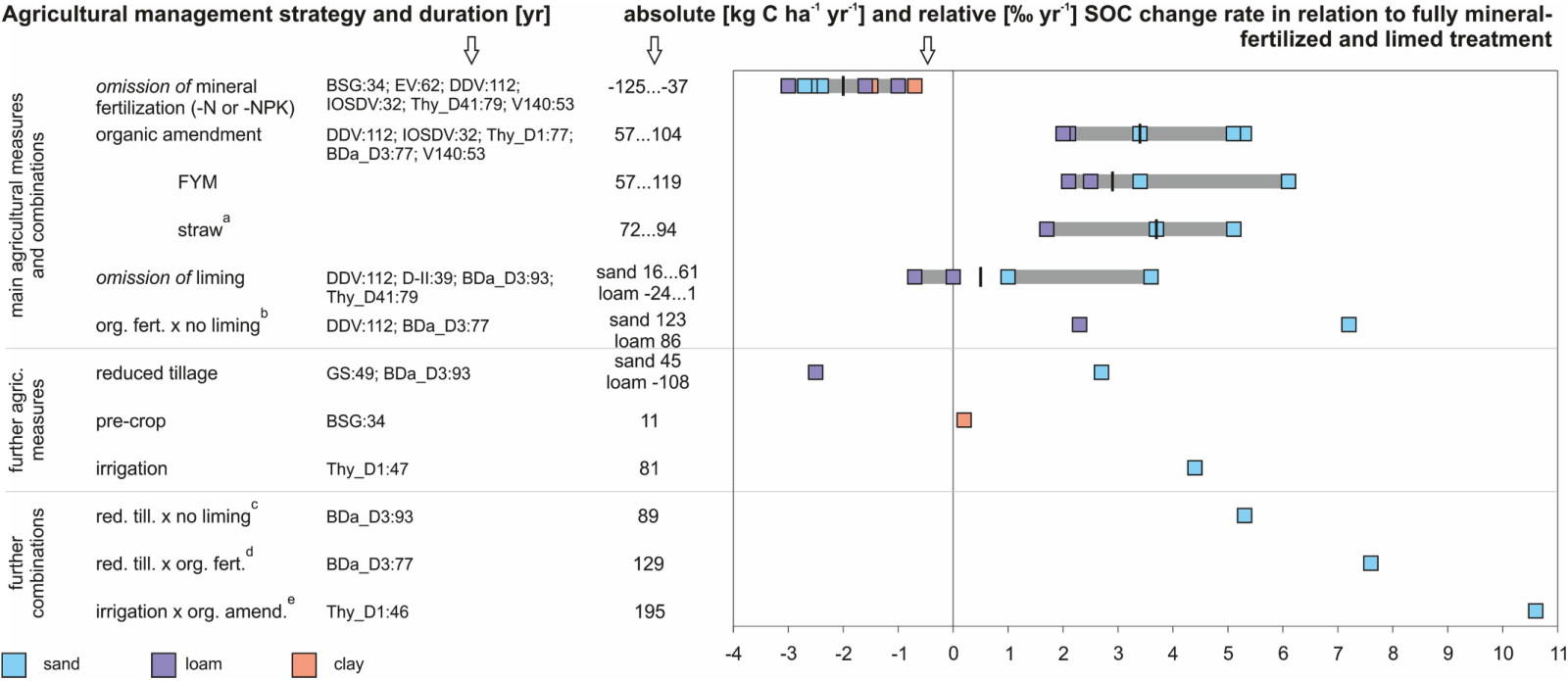October 1, 2023 | Geoderma |
Introduction: A German soil science research consortium led by University of Bonn explores the impact of various crop management techniques on soil organic carbon (SOC) stocks in the topsoil (0-30 cm depth) across 10 long-term experiments in Germany.
Key findings: The experiments reveal that mineral fertilization and organic amendments, such as straw incorporation, significantly enhance SOC stocks, while other factors such as irrigation, choice of preceding crops has only a minor influence. In contrast, liming and reduced tillage show limited or negative effects on SOC storage, depending on fertilization.
The effects of these management practices on SOC stocks vary with soil texture, with sandy soils exhibiting the lowest SOC stocks but the largest relative response to different management options. Annual changes in SOC stocks range from a decrease of 3.0‰ without mineral nitrogen fertilization to an increase of 6.1‰ with farmyard manure application, reaching even higher rates of up to 10.6‰ per year with the combination of irrigation and straw incorporation.
Conclusion: The study underscores the complex interplay of different management practices, offering insights into how these techniques can be optimized for soil carbon sequestration and climate change mitigation.

Fig. | Soil organic change rates under the respective agricultural management techniques.





